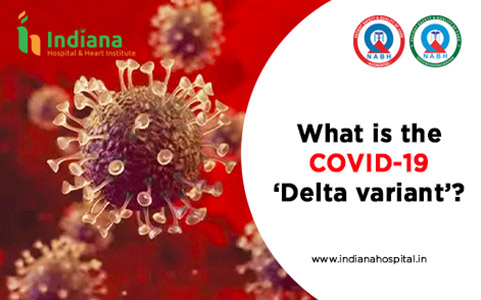What is the Covid-19 ‘Delta variant’?
June 22, 2021
Of the various mutations that the Covid virus has presented thus far, the Delta variant is the latest one to have got doctors and scientists worried. The US Centers for Disease Control and Prevention (CDC) has classified the Delta, a highly transmissible Covid-19 variant first identified in India, as a “variant of concern”.
Dr. Chandrashekhar T, chief intensivist at Fortis Hiranandani Hospital, Vashi, says this variant is believed to be “60 per cent more transmissible than the B.1.1.7 variant (or alpha variant) and may be associated with an increased disease severity, such as hospitalisation risk”.

What is it?
According to the WHO and CDC, while different mutant variants are prevalent in the US, Europe, South America, and a part of Africa as well as in the Asian region, the variants prevalent in the US are called Alpha, Beta and Theta — also prevalent in South America and Africa. Theta and Gamma were prevalent in European countries. Delta was prevalent in India and Asia, which has now spread to other nations, too. The Kappa variant was prevalent in Australia.
How dangerous is this variant?
Dr Chandrashekhar says it is first important to know what variants of concern (VOC) are.
“A variant for which there is evidence of an increase in transmissibility, severe disease, significant reduction in neutralisation by antibodies generated during previous infection or vaccination, reduced effectiveness of treatments or vaccines, or diagnostic detection failures are termed as VOC.”
The Delta variant, he says, was under investigation/variant of interest (VOI) even in the first wave, as it was termed as the variant of concern by the WHO. “WHO, ICMR, and other government agencies in India are closely watching its mutations. The Delta virus falls under the category of a variant of concern as it is more transmittable, more virulent, and causes many complications.”
Are vaccines the answer?
“Yes, the vaccines available to us put up a good defense against this variant. The problem is that not everybody has been vaccinated. And the variant is at its peak when the rate of vaccinations has slowed down nationally. Apart from this, staying at home and following all necessary safety protocols — social distancing, wearing a mask, and hand hygiene — are essential,” the doctor concludes.
The Indian Express
